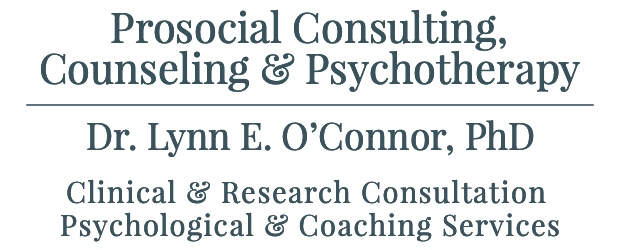Forgiveness: When and Why do We Forgive
In a recent dissertation, Kirsten Acker found that we’re willing to forgive those who harm us when they feel guilt and regret. Acker began with a simple mind experiment: “Think of a time when someone hurt you badly, but seemed oblivious or even comfortable about it” followed by: “How willing did you feel to forgive?” Next stage of the mind experiment: “Think of a time when someone hurt you badly, but was really upset, and full of guilt and regret.” Then: “How willing did you feel to forgive?” Everyone who Kirsten spoke to posing these situations and noting their responses, immediately recognized that if the perpetrator of the harm somehow expressed guilt and regret, forgiveness comes easily. It doesn’t seem to matter if the perpetrator expresses guilt and regret explicitly, we somehow recognize it. If not, it’s very difficult or even impossible to forgive.
While emotion-researcher Paul Ekman has suggested that guilt is a “mixed” and not a “pure” or fundamental human emotion, in part because we don’t exactly know how we express it or how we perceive it, nevertheless we do. We can somehow read it; perhaps it’s some body posture (since it doesn’t seem to be a clear facial expression), or some particular combination of signals that we have yet to be able to isolate. Whatever it is, we know it, we recognize and feel it, and most often we are eager to forgive, if for no other reason but to relieve the transgressor of the misery felt, in the wake of harming another person. Our empathy system, based on mirror neurons, picks up on the most subtle of cues leading us to identification with a person in pain, even a person whose harmed us. And guilt is often painful. Often empathy-based guilt is irrational, a reaction to imaginary crimes, but in this situation it’s part of the glue that holds our relationships together.
Acker examined the path of forgiveness by way of an experimental study using fictional characters who responded to harming another in different ways. In one condition the perpetrator expressed regret and guilt, in another the perpetrator seemed neutral, and in a third condition the perpetrator blamed the victim. Participants in the study then wrote narratives about the stories, and these were analyzed for how much the person harmed was willing to forgive, and how much she identified with the perpetrator. The results were clear. We forgive those who harm us when they feel bad about it. We don’t forgive those who harm us, when they have no regret about the harm done.
Forgiveness is often described in terms of a person’s characteristics, or kindness, or even devoutness to a religious ideal. It’s seen as an internal, one-person attribute. This has led to people feeling guilty (and this is irrational guilt) for being unwilling to forgive someone whose harmed them. But realistically, forgiveness and willingness to forgive is not an issue of internal inherent personality, or faith, or basic kindness. If you find yourself unwilling to forgive someone who has harmed you, don’t add insult to injury. Check out the situation. Willingness to forgive rests on the shoulders of those who harm, not on the victims of harm. And next time, put your trust in people who exhibit basic empathy. After all, that’s most of us. We’re built with a powerful hard-wired empathy system. Most problematic for most is when we feel responsible for imaginary crimes, when we unrealistically fearthat we’ve harmed someone, and we bend over backwards, often self-defeating, to let them know of our guilt and regret –for crimes we didn’t commit.
Acker, K. (2012). When do we forgive? Presented at Western Psychological Association, Burlingame CA, April.
